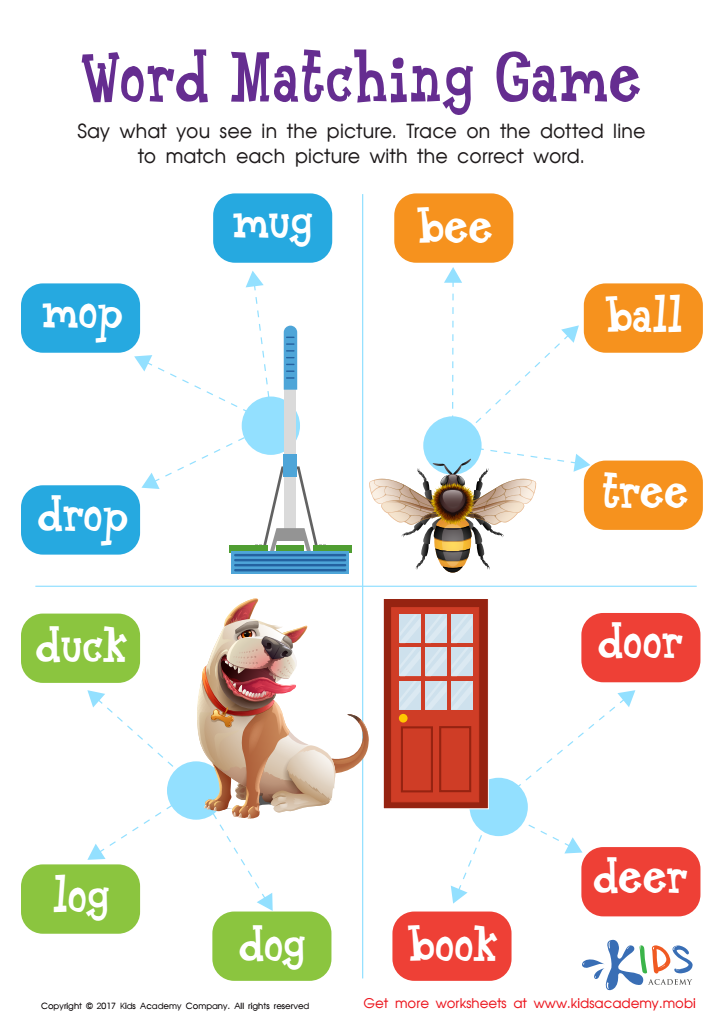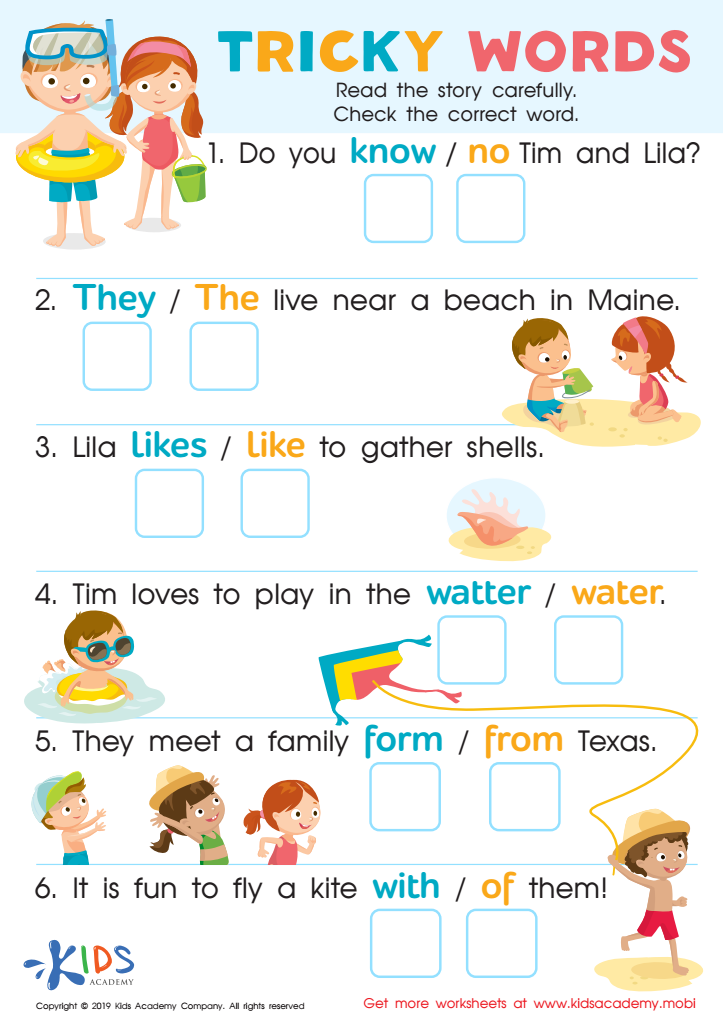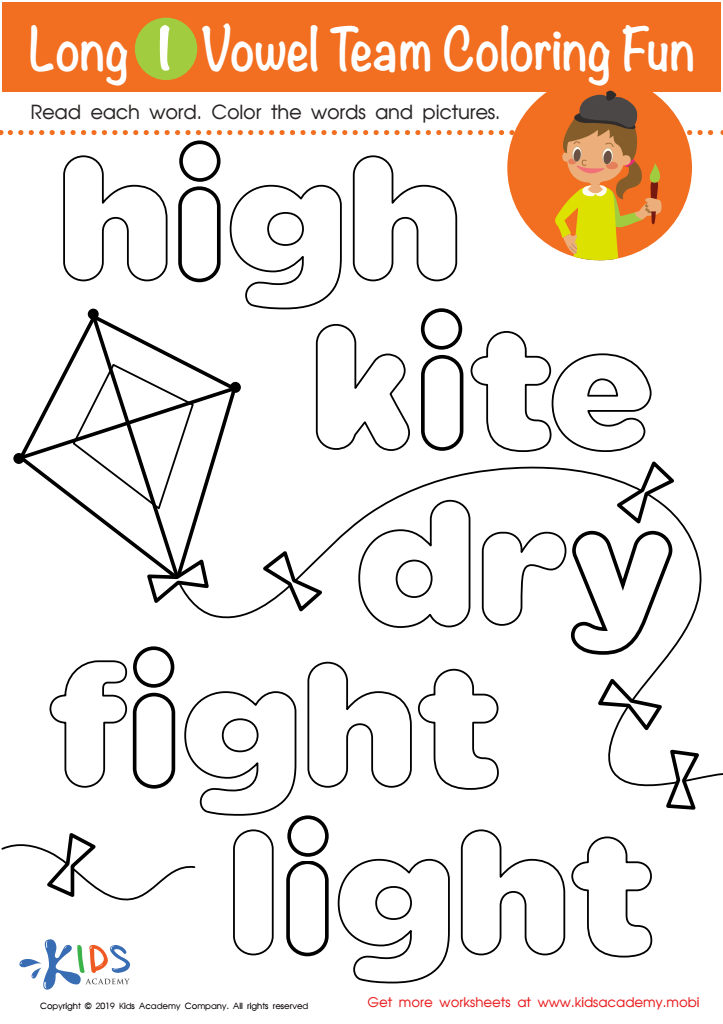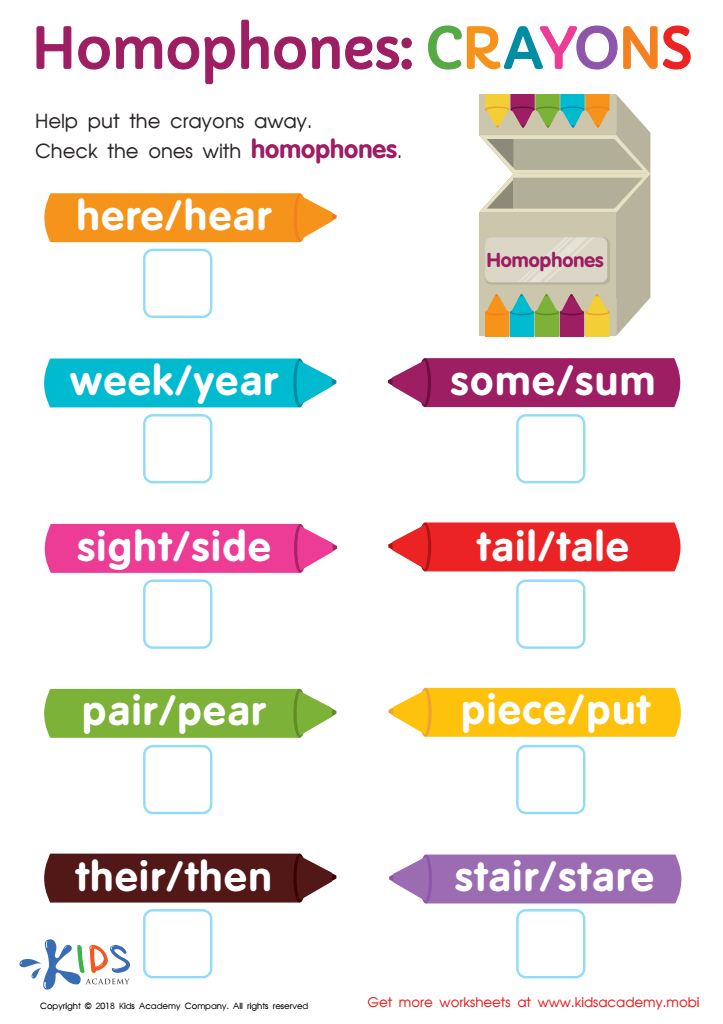Spelling practice Normal Elementary Phonics Worksheets for Ages 3-9
4 filtered results
-
From - To
Strengthen your child's spelling skills with our comprehensive Spelling Practice Elementary Phonics Worksheets, designed for ages 3-9. Our expertly crafted worksheets focus on mastering the basics through fun and engaging exercises that cover phonics, letter recognition, and early literacy skills. Each worksheet is specifically curated to reinforce correct spelling patterns, promote vocabulary development, and enhance word-building techniques. Perfect for young learners, our resources are a valuable tool for supportive homeschooling or supplemental classroom use. Help your child confidently progress in their reading and writing journey with our top-quality practice worksheets. Give them the tools to succeed today!


Word Matching Game Worksheet


Tricky Words Worksheet


Long I Vowel Team Coloring Worksheet


Homophones: Crayons Worksheet
Parents and teachers should prioritize spelling practice and phonics for early elementary aged children, ages 3-9, as foundational skills in these areas are critical to their overall literacy development. Spelling practice helps children understand the relationship between letters and sounds, which is essential for effective reading and writing. By recognizing patterns in spelling, children build a strong vocabulary and improve their ability to decode new words, fostering confidence in reading.
Phonics, the study of letter-sound relationships, empowers young learners to connect spoken language with written text. This connection is crucial for reading fluency, comprehension, and effective communication. Engaging in regular spelling and phonics activities sharpens listening skills, enhances memory, and promotes cognitive development.
Furthermore, early mastery of these skills can lead to a lifelong love of reading and learning. It equips children with the tools they need to explore, understand, and interact with the world around them. This strong literacy foundation supports academic achievement across all subjects and sets the stage for future success in school and beyond. In sum, committing to spelling practice and normal elementary phonics offers significant long-term educational benefits for children, making it an indispensable aspect of early childhood education.
 Assign to My Students
Assign to My Students









